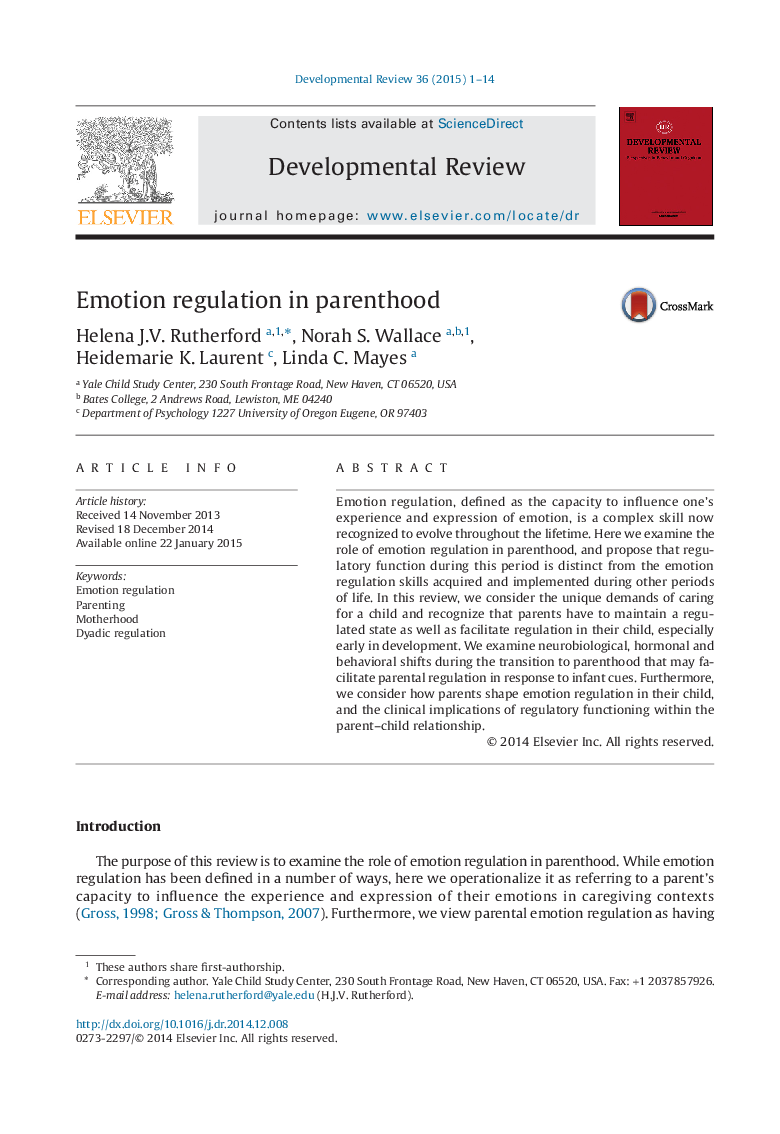| Article ID | Journal | Published Year | Pages | File Type |
|---|---|---|---|---|
| 353460 | Developmental Review | 2015 | 14 Pages |
•Emotion regulation (ER) is a critical faculty of parenthood.•ER is important for both parent and child development.•Changes in neurophysiology and psychology may facilitate parental ER.•Parental ER is an important area for experimental and clinical research.
Emotion regulation, defined as the capacity to influence one's experience and expression of emotion, is a complex skill now recognized to evolve throughout the lifetime. Here we examine the role of emotion regulation in parenthood, and propose that regulatory function during this period is distinct from the emotion regulation skills acquired and implemented during other periods of life. In this review, we consider the unique demands of caring for a child and recognize that parents have to maintain a regulated state as well as facilitate regulation in their child, especially early in development. We examine neurobiological, hormonal and behavioral shifts during the transition to parenthood that may facilitate parental regulation in response to infant cues. Furthermore, we consider how parents shape emotion regulation in their child, and the clinical implications of regulatory functioning within the parent–child relationship.
